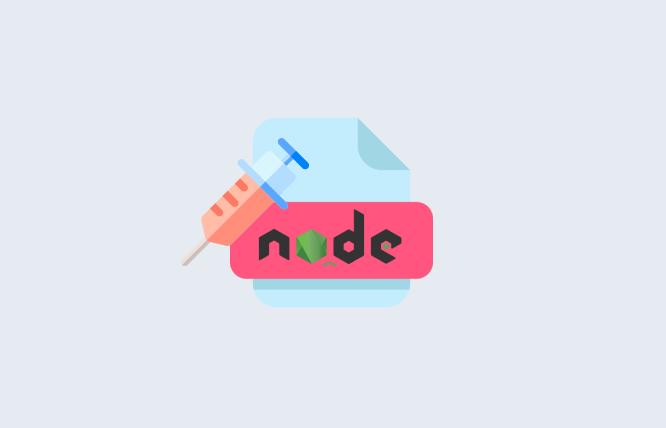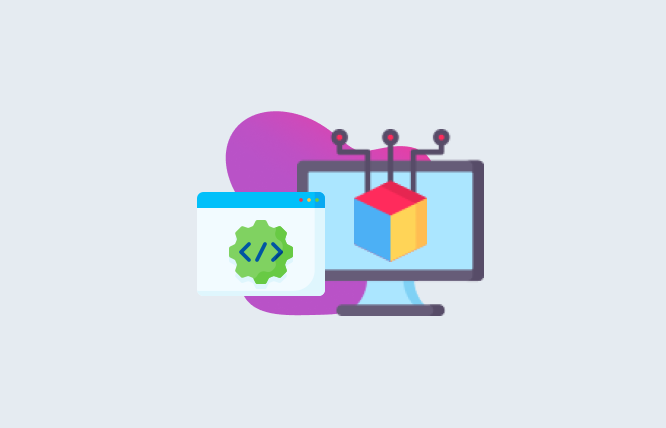Enterprise CMS: Robust Solutions for Large Organisations
In this blog, we will find out the fundamental aspects of enterprise CMS for big companies. We will see how top CMS platforms such as Drupal, AEM, WordPress VIP, Sitecore, and Joomla can optimise content management and foster digital innovation. Let’s check out why you need an enterprise CMS.
Without a CMS you cannot manage extensive amounts of content, for example, blog articles, descriptions of products, and promotional content – the content is endless and managing it requires an efficient CMS that allows content management for non-developers as well.
So how do you manage such large amounts of content? Obviously, through an enterprise CMS. You need an enterprise CMS to keep your content in order, ensuring your team’s productivity doesn’t go to waste managing content manually.
Here are some stats that signify the importance of CMS for enterprises:
Statista predicts that the CDN market worldwide will reach an impressive $41.3 billion by 2027.
This data emphasises the increasing amount of content being produced by businesses. It indicates the need to have an enterprise content management system that manages everything from docs, images, and other types of content.
The Challenge of Managing Content at Scale
Without a solid system, managing large volumes of content can be a headache for any organisation. You might face issues like inconsistent content delivery, slow updates, and difficulties managing different types of content across various departments.
You might have hundreds of blog posts, product descriptions, and internal documents scattered across different systems, how can you manage them efficiently? It becomes hard to keep a consistent brand voice. The lack of management can lead to errors, delays, and a frustrating user experience for both employees and audience.
So, what is the solution? The solution is an Enterprise CMS (Content Management System). It can solve these problems by providing a centralised channel where all content can be managed efficiently.
Why Large Organisations Need a Robust CMS
A basic CMS won’t cut it for managing large-scale content. An enterprise CMS is your secret weapon because it offers not only a centralised platform but also powerful search tools to find specific content instantly.
You can assign roles and permissions to ensure everyone has secure access. This feature prevents misuse by giving each user only the access they need. Moreover, CMS makes it easier to handle websites in multiple languages with integrated multilingual features. It also integrates with additional marketing tools, enabling smooth content management on websites, social media, and email. As your company expands, an enterprise CMS will scale with you, managing more content and users efficiently.
Here is a list of benefits you get with an enterprise CMS:
- Manage everything from blogs to product descriptions in one place for ultimate efficiency and brand consistency.
- Enterprise CMS scales effortlessly with your growing content needs, so you are always covered.
- Top-notch security features protect your valuable content with features like role-based access control.
- Integrate your CMS with other systems like ERP for seamless data flow and boosted productivity.
- Manage multiple websites and sub-domains from a single dashboard for effortless multi-site management.
- Customise your CMS with custom website development to perfectly match your unique business needs.
When it comes to large-scale projects, getting CMS development services can be a game-changer. Consider FuturByte for enterprise CMS solutions tailored to your organisational needs.
Must-Have Features for an Enterprise CMS
An enterprise CMS is essential for effectively managing large-scale content. Below are the key characteristics that turn an enterprise CMS into a strong asset for your company:
1. Scalability
As your business expands, so does your content. An enterprise CMS is designed to scale seamlessly, accommodating higher content volumes, user interactions, and data flows without compromising performance.
2. Multi-Site Management
Large organisations often manage multiple websites or digital properties. An enterprise CMS simplifies this complexity by offering centralised management of content across various sites from a single platform. This ensures consistency in branding, messaging, and user experience.
3. Security
Securing important information and adhering to regulations is crucial. Enterprise CMS platforms offer strong security features like role-based access control, encryption, and audit trails to protect your organisation’s information assets.
4. Integration Capabilities
To improve operational effectiveness, a company’s CMS should easily connect with other business systems like ERP for efficient data sharing, CRM for customer understanding, and marketing automation for specific campaigns.
5. Customisation Options
Each organisation has specific requirements for managing content. A business CMS provides a wide range of customisation choices, enabling you to personalise workflows, content types, templates, and user interfaces to meet your specific business needs.
6. Content Workflow Management
Comprehensive workflow management capabilities facilitate effective collaboration and content approval processes. An enterprise CMS facilitates seamless workflow coordination among teams and departments, from creating content to reviewing, approving, and publishing.
7. Analytics & Reporting
Robust analytics and reporting tools integrated within the CMS support decision-making based on data. Obtain information on how your content is performing, user interactions, engagement data, and other metrics to constantly improve your online strategy.
8. Accessibility & Usability
Compliance with modern accessibility standards guarantees that all users can quickly access your content. A corporate content management system follows WCAG guidelines and provides functions such as text-to-speech, screen reader compatibility, and support for keyboard navigation.
9. Mobile Optimisation
With the proliferation of smartphones, it is crucial to guarantee a smooth user experience across all screens. A business CMS offers responsive design abilities and mobile optimisation features to present content that is both visually appealing and easily accessible on smartphones and tablets.
10. Support & Training
Having thorough support services and training resources is also important for maximising the value of your enterprise CMS investment. Providers offer technical assistance, training for users, documentation, and community forums to support your team and address problems quickly.
Benefits of Using an Enterprise CMS
Implementing an enterprise CMS brings numerous benefits to your organisation:
- You get a centralised content management hub to manage all digital content from a single platform, improving efficiency and consistency.
- It enhances collaboration and facilitates teamwork across departments with shared workflows and secure access controls.
- An enterprise CMS meets regulatory requirements and protects sensitive data with advanced security features.
- You also get to scale your CMS as your organisation grows, adapting to changing needs and expanding operations.
The Best Enterprise CMS for Your Business
The right enterprise CMS depends on the needs and goals of your business. Some common choices include Drupal, Adobe Experience Manager, WordPress VIP, and Sitecore.
Assess customisation abilities, integration choices, scalability, support offerings, and overall cost to find the most suitable solution for your requirements. It is recommended to consult with a company that provides enterprise CMS development services because it not only help you decide which CMS is best but also help you build one from scratch.
Top Enterprise CMS Choices for Managing Your Content Empire
Okay, so you’ve decided an enterprise CMS is the way to go – wise move! But with the rising competition, which one is right for your organisation? Let’s break down some of the top contenders:
Adobe Experience Manager (AEM)
Adobe Experience Manager (AEM) is a versatile enterprise CMS that handles everything from websites and mobile apps to social media and marketing campaigns. It offers powerful capabilities, though it can be complex to set up initially.
| Pros | Cons |
Handles websites, mobile apps, social media, and marketing campaigns. Powerful capabilities. | Complex setup process. |
Comprehensive integration with Adobe’s marketing suite for enhanced campaign management. | High initial cost and ongoing maintenance expenses. |
Sitecore
Sitecore is famous for its easy-to-use interface and highly secure features. Sitecore is highly skilled at customising content for diverse target audiences, making it an ideal option for companies with an international presence.
| Pros | Cons |
User-friendly interface, strong security. Excels at personalized content delivery. | Higher cost compared to some competitors. |
Robust analytics and insights for optimizing customer experiences. | Steeper learning curve for less experienced users. |
Contentful
This cloud-based CMS is all about flexibility. It lets you manage content independent of the platform you use to display it, giving you tons of freedom for building custom web experiences.
| Pros | Cons |
Cloud-based, offers flexibility in content management. Customizable web experiences. | Require integration with other systems for full functionality. |
API-first approach facilitates easy integration with third-party applications. | Limited built-in features compared to some traditional CMS platforms. |
Drupal
If open source is your jam, then Drupal is worth considering. It’s free to use and highly customisable, but requires more technical expertise to manage.
| Pros | Cons |
Open source, highly customisable. Free to use. | Requires technical expertise for management and customization. |
Active community support and extensive module library for additional functionality. | Can be resource-intensive to maintain for large-scale deployments. |
WordPress VIP
This is the business edition CMS from the well-known WordPress platform. With improved security, scalability, and support, it is a reliable choice for businesses that are already comfortable using WordPress.
| Pros | Cons |
Enhanced security, scalability, and support. Familiar WordPress interface for users. | Higher cost for enterprise features. |
Extensive plugin ecosystem for custom functionality without extensive development. | Limited flexibility for highly customised enterprise solutions. |
These are just a few of the big players who offer enterprise CMS. The list goes on and the customisations are ultimate. At FuturByte, we as a team of professional CMS developers provide full-scale CMS development and customisation options according to your enterprise level needs.
But here’s the thing: No matter which enterprise CMS you choose, you’ll get some content management benefits:
- Centralised Hub: No more content spread out on various platforms. An enterprise CMS ensures all content is centralised, simplifying content discovery and management.
- Teamwork Makes the Dream Work: Teamwork is made easier with CMS functions such as user roles, approval workflows, and shared workspaces. Your marketing team can concentrate on producing excellent content instead of arguing over who made the edits.
- Global Domination (of Your Industry): Reach new audiences with multilingual capabilities. Easily translate and manage content for different regions, all within your CMS.
- Content Marketing for Benefits: Get serious about SEO and analytics. Enterprise CMS platforms often offer built-in tools to optimise your content for search engines and track its performance.
- Future-Proof Your Content Strategy: As your business grows, your CMS can grow with you. Scalable solutions ensure you have the power to manage ever-increasing content demands.
Keep in mind that selecting the appropriate enterprise CMS is a financial commitment to your content strategy. By utilising these strong platforms, you can simplify processes, inspire your team, and, develop content experiences for your audience and generate tangible business outcomes.
Top Trends in Enterprise CMS
As technology continues to evolve, so does the landscape of enterprise CMS (Content Management System). Here are some emerging trends that are shaping the future of enterprise CMS:
AI-Powered Content Management
Artificial Intelligence (AI) is the new comrade that complements CMSs. It is transforming content management by automating tasks like content tagging, personalisation, and analytics. AI-powered content management systems can analyse user actions to provide customised content experiences instantly.
Headless CMS Architecture
A headless CMS is a separator of the backend content management functions from the frontend interface, allowing for versatile content delivery on different devices and platforms. This structure enables companies to swiftly adjust to shifting digital landscapes.
Cloud-Based CMS Solutions
Cloud-powered content management systems provide the advantages of being scalable, flexible, and cost-effective. Companies can use cloud infrastructure to control content worldwide, enhance accessibility, and decrease maintenance costs.
Omnichannel Content Delivery
With the increase of mobile and IoT devices, omnichannel content delivery guarantees uniform user experiences on every digital touchpoint. Content management systems aid in easy distribution and management of content across various platforms including websites, mobile apps, social media, and new platforms.
Enhanced Security & Compliance
Due to strict data privacy regulations, CMS platforms are improving security measures like encryption, secure authentication, and compliance management. Stricter data protection standards are being pushed in CMS development due to GDPR and CCPA compliance.
Personalisation & Customer Experience
Customised content experiences are becoming a crucial aspect of successful online marketing strategies. Modern CMS platforms utilise data analysis and artificial intelligence to keep the content personalised according to your user’s interests, actions, and characteristics.
The Rise of the MACH Architecture
This approach focuses on Microservices, APIs, Cloud-native development, and headless architecture. Consider it a modular method for enterprise CMS, enabling companies to select the most suitable tools for their particular requirements.
Why Choose FuturByte for Enterprise CMS Development?
Being a leading software development company, FuturByte understands the complexities that content plays in your organisational goals. We strive to provide the best CMS that not only streamlines your workflows but also keeps you at ease, knowing that the content is stored and distributed in an organised way.
- We tailor enterprise CMS solutions to fit your business needs.
- Our CMS solutions are designed to integrate effortlessly with existing ERP systems and web applications. You can also get custom website design and development services from us.
- We incorporate high-level security protocols to safeguard your content and data.
- Our CMS solutions are built to evolve as your business grows, guaranteeing lasting dependability.
- We offer 24/7 support and maintenance to keep your CMS running smoothly.
Conclusion
The increasing need for content in big businesses can be daunting. But have no fear! Enterprise CMS is like the hero saving the day. It is a strong tool that simplifies processes, enables your team, and reveals a wealth of advantages in content management.
Don’t forget that selecting the correct enterprise CMS is a commitment to your company’s future. By utilizing these effective platforms and staying updated on upcoming trends, you can guarantee the success of your content strategy in the constantly changing digital environment.
Therefore, grab hold of your content future now. Get the advanced enterprise CMS solution, spread content, and witness consistency across multiple channels.
Frequently Asked Questions
Yes, FuturByte specialises in multi-site CMS management, allowing organisations to efficiently manage content across multiple websites from a unified platform. Our expertise ensures consistent branding and streamline content updates across diverse digital properties.
FuturByte excels in delivering robust CMS solutions like Drupal, AEM, and WordPress VIP. We offer expertise in CMS development services, ensuring that the CMS supports your business objectives and improves productivity.
An Enterprise CMS is designed for large-scale operations, offering advanced features like multi-site management, robust security, and scalability beyond what a regular CMS provides.
Yes, Enterprise CMS platforms can integrate seamlessly with ERP systems, facilitating streamlined data flow and enhancing operational efficiency.
Absolutely. Enterprise CMS platforms support custom development for tailored content structures, workflows, and integrations, catering to specific business needs like ERP system development and webapp development.
Have questions or feedback?
Get in touch with us and we‘l get back to you and help as soon as we can!




